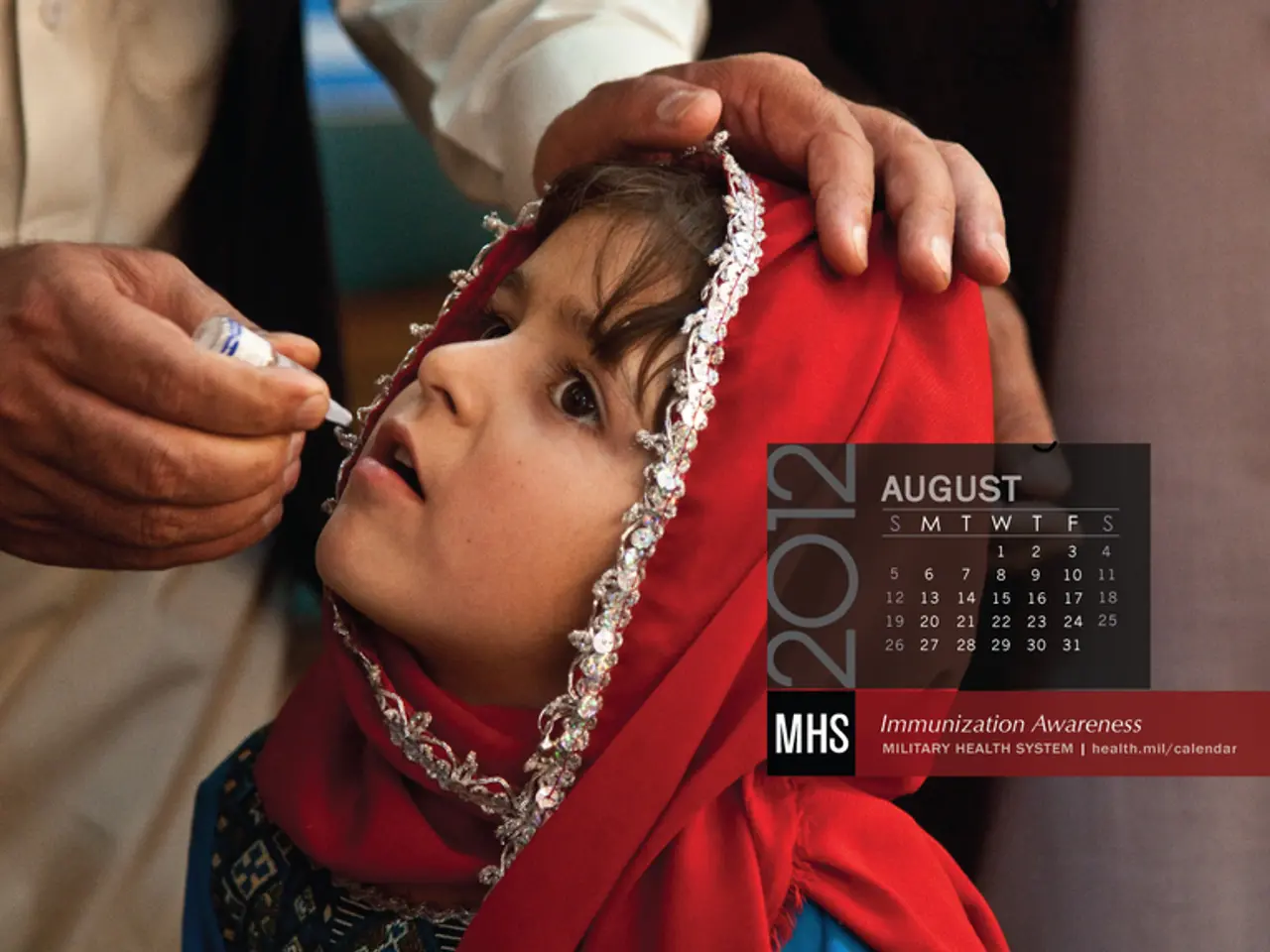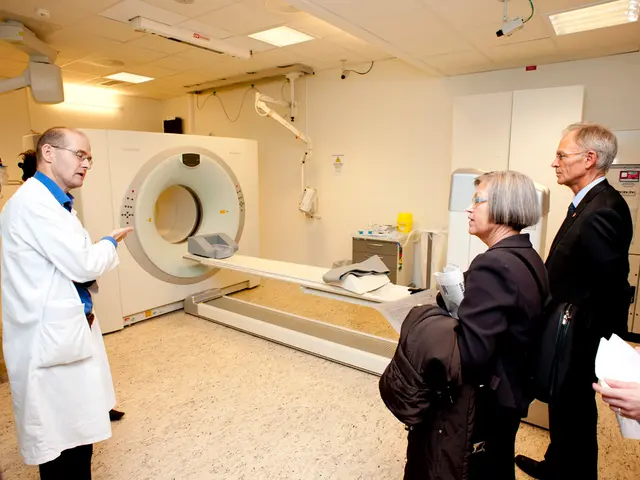Pregnant Women and Rubella Vaccination: A Discussion
The MMR (Measles, Mumps, and Rubella) vaccine plays a crucial role in preventing these three infectious diseases. However, when it comes to pregnancy, the guidelines are specific to ensure the safety of both mother and baby.
Before pregnancy, women planning to conceive should ensure they have received two doses of the MMR vaccine at least 28 days (1 month) before conception. This is to ensure immunity against measles, mumps, and rubella. If immunity is uncertain, vaccination is strongly advised before pregnancy, as rubella infection during pregnancy can cause severe birth defects and miscarriage.
During pregnancy, the MMR vaccine is not recommended due to it being a live attenuated vaccine. Vaccination should be avoided in pregnant individuals, and pregnancy should be deferred for at least 28 days after receiving an MMR dose. If a woman inadvertently receives the vaccine during pregnancy, it is not considered a reason for pregnancy termination.
Postpartum, pregnant patients without evidence of immunity should be vaccinated with MMR, ideally before hospital discharge after delivery. This is to protect against future rubella infection and its complications.
Breastfeeding individuals can safely receive the MMR vaccine, and it does not adversely affect the neonate.
It's important to note that rubella, also known as German measles, can cause serious complications to the baby during pregnancy, such as miscarriage, stillbirth, and congenital rubella syndrome (CRS). CRS can lead to defects including low birth weight, cataracts, deafness, heart defects, skin rash at birth, brain damage and intellectual disabilities, inflammation of the lungs, glaucoma, hormone and thyroid troubles.
If a pregnant person suspects exposure to rubella, they should avoid contact with other pregnant people. Doctors may monitor the health of the unborn baby using an ultrasound to look for any potential defects.
If a person experiences or suspects exposure to rubella during pregnancy, they should contact a doctor immediately. After receiving the MMR vaccine, a person should avoid getting pregnant for at least a specified period.
While many vaccines are safe during pregnancy, the MMR vaccine should be avoided due to the risk of passing the weakened virus to the baby. Mild symptoms of rubella may include fever, skin rash, general discomfort, headache, runny nose, cough, sore throat, pink eye, swollen lymph nodes, muscle aches, joint pain, loss of appetite.
If you are planning to become pregnant, it's advisable to speak with your doctor to determine your vaccination history. Over-the-counter medications such as paracetamol may be recommended to reduce discomfort from fevers and aches.
In summary, verifying immunity before pregnancy, vaccinating nonimmune women well before pregnancy (at least one month prior), avoiding MMR vaccination during pregnancy, and vaccinating after delivery are essential to protect against rubella and congenital rubella syndrome. These measures help ensure a healthy pregnancy and the birth of a healthy baby.
- The MMR vaccine, despite being crucial, is not recommended during pregnancy due to it being a live attenuated vaccine.
- Pregnant individuals should avoid receiving the MMR vaccine, and pregnancy should be deferred for at least a month after getting the dose.
- Prospective mothers who plan to conceive should ensure they have received two doses of MMR, at least a month before conception.
- Rubella infection during pregnancy can lead to severe birth defects, miscarriage, and congenital rubella syndrome (CRS).
- CRS can result in defects like low birth weight, cataracts, deafness, heart defects, skin rash at birth, brain damage, intellectual disabilities, inflammation of the lungs, glaucoma, hormone and thyroid troubles.
- If a pregnant person suspects exposure to rubella, they should avoid contact with other pregnant people and consult their doctor immediately.
- Postpartum, women without evidence of immunity should be vaccinated with MMR, ideally before hospital discharge.
- Breastfeeding individuals can safely receive the MMR vaccine without it affecting the neonate.
- Over-the-counter medications such as paracetamol may be recommended to reduce discomfort from fever and aches after the MMR vaccination.
- It's advisable for those planning to become pregnant to speak with their doctor to determine their vaccination history and discuss personal-finance concerns like budgeting for potential treatments or therapies when it comes to managing certain medical-conditions and chronic-diseases, especially during pregnancy.




